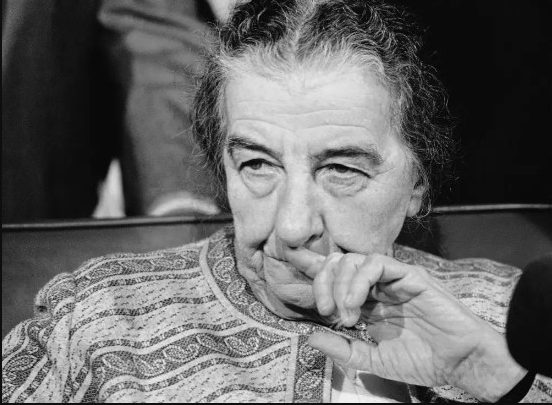My Life: The Iron Lady of Israel, Golda Meir - XXIII
Total Views |
Golda still wanted to know why her socialist friends were against the refuel as a part of the airlift operation. Weeks after the war she even asked Willy Brandt who was respected in the socialist international. She wanted to know the meaning of socialism when no Socialist country in Europe came forward to help the only democracy in the Middle East. When the leadership meeting of socialist international was called in London, she explained the entire situation in detail. The war, the wishful thinking when intelligence reports suggested otherwise and ultimately how the war was won. European nations refused to refuel the planes ( from America )that saved Israel from destruction. Israel a small Jewish state had no comparison with Arab states that had endless oil and all the money. She wanted to know how the old comrades and long-standing friends did not help, she wanted to know whether these things influence Socialist thinking too. Someone said that their throats were choked with oil.

The only thing Israel had, was their spirit, if that was to be destroyed then she said to Kissinger when she went to America during the negotiations, there was no need for any aid.
The agreement was signed between Israel and Egypt which had some clarity on the main points. Both the countries had direct contact, and the points related to the Suez Town, its receiving daily supply, UN checkpoints, Israel joining the supervision and Prisoners of War were discussed. POWs returned, returned with their great spirit, despite the tough time they had gone through. They presented the blue and white Star of David they knitted in prison, to Golda.
The information about POWs from Syria was not shared.
Moshe Dayan was at the centre of the tempest, a minister asked for his resignation, of course, Golda never liked it, especially when it had every possibility of being highlighted by the press. The war was going on, and she did not want Moshe Dayan to resign. One disaster added to the cabinet could have been avoided. The election was postponed by a couple of months, and she wanted to hold on for some time. Ultimately the committee too did not find him responsible for unpreparedness on war.
The treatise was not signed after weeks, the question of prisoners of war was not solved, and the shooting did not stop altogether. The situation did not change. Kissinger was tirelessly working. Ultimately disengagement treaty was signed without a political solution.
Elections were held, and the country did not want to change the government people at that stage. The coalition government was to be formed, it was a very difficult phase. Forming a coalition government was a very complex task. There were many pulls and counter pulls and Golda thought she had to stop, relinquish. There were efforts to persuade her, but that did not change her thought. She had almost 50 years of political career, she stayed as the head of the caretaker government until the new cabinet was formed. She left the office on the 4th of June, The next day disengagement treaty was signed. The prisoners of war returned, and the number was smaller than expected.
The next prime minister was Yitzhak Rabin. He was Sabra, a generation of people born in Israel.
She spent her entire career in making and working hard to develop the Jewish state. Being a Jew, for her it was 'the part of people that maintained its distinct identity for over 2000 years with all pain and torment inflicted on them'. She stated that the state came into existence ' as a result of the longing, the faith and determination of an ancient people.' With it, the history changed forever. She felt blessed as she could see the Jewish state become a reality, the Jews from all over the world could be absorbed successfully. Every Jew has the right to settle in Israel by law. Jews learned the art of living amidst the hatred and people who wanted to destroy them. She thought they were to choose between more dangerous and less dangerous. She felt ' the world was less sensitive to the sufferings of small nations.' International relations were not driven by justice, she observed. She wanted Jews 'to act upon the most fundamental instinct of self-preservation'. She believed that there would be peace with neighbours, but no peace would be made with a weak country. She saw the future with ' flourishing democracy and society resting firmly on social justice and equality'. She knew that the no jew would settle with less than this.
This is the story of a woman who always dreamt of the Jewish state and worked relentlessly to make it a reality. She did not stop at this juncture but worked harder for the state to make it what it is today, a developed state. She expressed the struggle of women who work in society and especially in politics. Her life story portrays the picture of a woman who is not ready to compromise, she wants nothing less than her aim fulfilled. She fearlessly worked to make the future of the next generations safe. Her journey is unbelievable, one is amazed at her capacity to work for such a long period and devote her total energy to the task of nation-building. Very few women, or even men could achieve the feat she could. One can shake off the frustration when one reads such books. Not as a ritual, I say it with all seriousness, one grows with the reading of books like this.
I request the readers to share their opinions on this and the series of articles written by me freely.
Let us meet on Thursdays with a small series of articles on the evil that is drug addiction.


